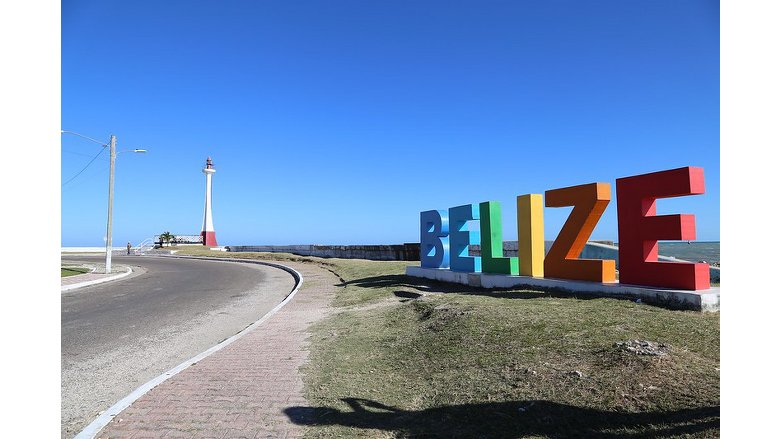In February 2022, as COVID-19 continued to challenge healthcare systems worldwide, the Government of Belize and the World Bank launched a COVID-19 response project with one purpose: provide access to vaccines to people. As the pandemic continued and vaccine donations increased, the Ministry of Health and Wellness and project team decided to reallocate the originally earmarked vaccine funds for other pandemic-related support. Rather than scaling back, they saw an opportunity—what if these resources could address longstanding healthcare challenges that predated the pandemic, and better prepare the health system for future shocks?
This pivotal decision shifted the project's trajectory from emergency response to system-wide improvements. While vaccination rates reached 66.2%—exceeding the initial project target of 41.65%—the project started working on bringing broader health system improvements to healthcare access and delivery across Belize, with a focus on primary health care, the backbone of any health system.
A Healthcare System Reinforced
In remote communities throughout Belize, mobile clinics began arriving with increasing frequency and covering more locations. These weren't just vaccine distribution points; rather, they provided a suite of essential primary health care services for many underserved areas. The project supported the Government of Belize in executing more than 5,000 mobile clinic visits across six districts, strengthening the outreach network of care and reaching previously isolated populations.
Meanwhile, the medical workforce challenge began to shift as seven cohorts of doctors, nurses, and health workers joined the health system, initially as temporary pandemic responders. Their impact proved to be vital - their contracts were extended through March 2025, and some were transitioned into new permanent positions creating continuity in care that patients could rely on and allowing the Belizean health system to provide care to many people to had deferred care during the pandemic.
Transportation barriers which previously challenged healthcare delivery began to diminish as four vans and two trucks distributed through the project connected medical facilities with outlying areas. Medical supplies and personnel could now reach destinations that were once difficult to serve regularly.
From Grassroots to System-Wide Change
One of the most compelling developments occurred within Belize's community health worker program. These frontline workers—often the first point of contact for healthcare in many communities—received 130 bicycles, bags, and medical kits that expanded their reach and capabilities. More significantly, over 480 community health workers underwent training in gender-based violence response and psychological support, enhancing their ability to serve vulnerable populations with a broader range of skills.
The project also supported the Digital in Health agenda with the addition of 20 desktop computers and 40 laptops to various facilities, helping to enhance the digitalization of health data within the Belize Health Information System. These equipment upgrades allowed for more efficient information handling across healthcare services.
Training and Feedback Systems
The training initiative for healthcare workers addressing gender-based violence illustrated how the project has influenced practices within the medical system. The project has supported the training of medical professionals at the national and regional levels in prevention and response to gender-based violence during emergencies. These efforts were a result of collaboration between the Government of Belize, the World Bank, PAHO, and UNFPA. The 18 percentage points increase in gender-based violence knowledge and response strategies represented improvement in care capabilities. The Ministry of Health and Wellness and the project team worked together to scale up this training nationwide and include it into existing curricula for key personnel involved during emergencies, showing a strong commitment to strengthening the country's capacity to respond to disasters.
The project also gathered public feedback through a Vaccination Satisfaction Survey. The results showed that 88% of respondents were satisfied with facility cleanliness, staff professionalism, and vaccine administration. The survey also highlighted opportunities for improvement in areas such as vaccine hesitancy and accessibility. These insights are contributing to the ongoing refinement of the vaccination program.
Looking ahead, Laura Di Giorgio, World Bank’s Senior Economist and the project lead, emphasized that primary healthcare systems must be ready to provide care to everyone in the country and be resilient to future shocks: “Through this project, we are better preparing Belize’s Primary Health Care System to handle the increasing health threats brought by climate change and epidemics, while also expanding service delivery to underserved areas, thus addressing issues of inequities in access to care in rural areas.”
“The pandemic exposed vulnerabilities in our healthcare system, and this project allowed us to address them head-on. By investing in infrastructure, expanding access to care, and equipping frontline workers with the tools they need, we are not just recovering from COVID-19—we are strengthening a system that can better withstand future health challenges.” said Lizett Bell Deputy Director Hospital Services and Allied Health, Director of Project Management at the Ministry of Health and Wellness.
The project was part of the COVID-19 multiphase programmatic approach, a phased financing model that allows large programs to be broken into smaller projects tailored to a country’s evolving needs. As the project approaches its December 2025 closure, several important initiatives remain underway. The construction of autoclave houses in Punta Gorda and Corozal hospitals will improve medical sterilization processes. Training programs in life support, immunization, and gender-based violence prevention is also ongoing.
The improvements to Belize's healthcare system stand as a testament to how crisis, when met with vision and adaptability, can lead to lasting positive change.
The World Bank Belize COVID-19 Team consists of Behnaz Bonyadian, Lauria Di Giorgio, Patricia Alvarez, Leslie del Carmen Yanex Fernandez, Tomas Plaza Reneses, Aradhna Mathur, Charles Ankisiba, Saidu Dani Goje, and Monique Frederica Harper Griffiths.

